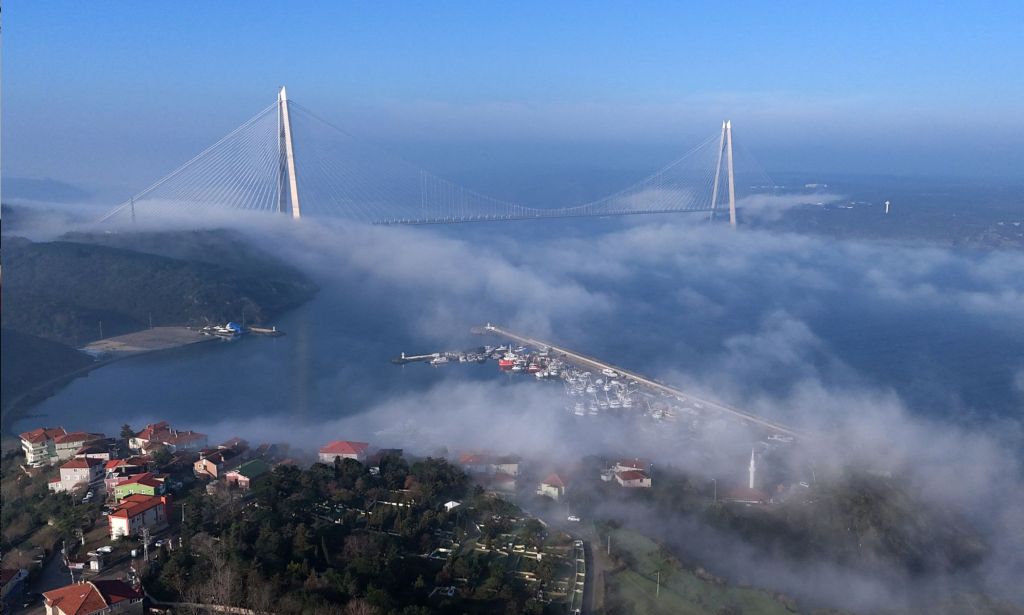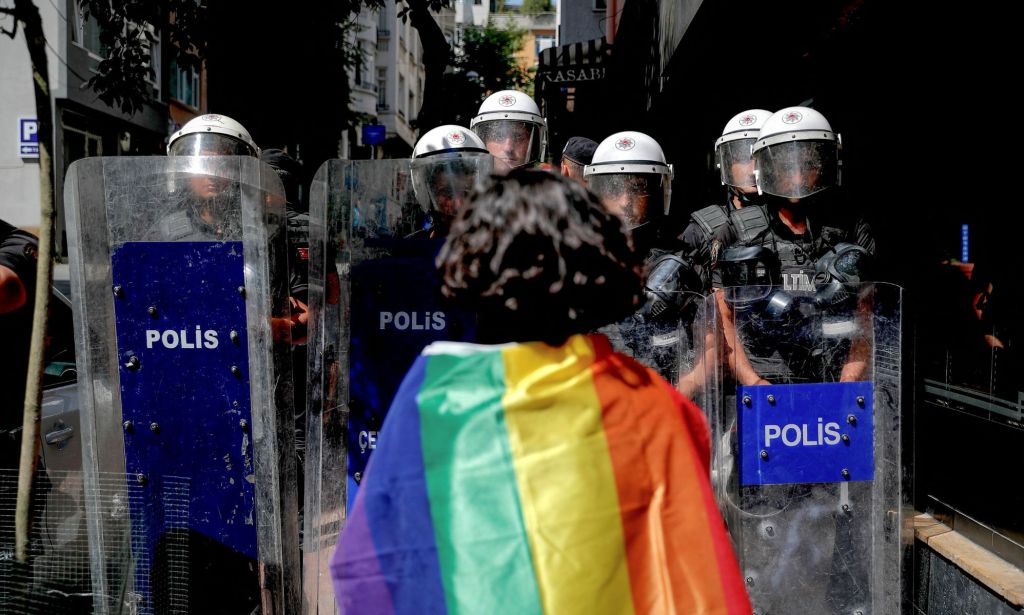Is it safe to travel to Turkey if you’re LGBTQ+? Here’s what you need to know

Kuşadası, a beach resort town on Turkey’s western Aegean coast (Marka/Universal Images Group via Getty Images)
Turkey is an extremely popular destination, both for holidays and for people looking to get cost-effective dentistry and weight-loss surgery. But is it safe for LGBTQ+ people to visit?
Firstly, same-sex relationships and queer or trans people are not illegal in Turkey, but the country doesn’t offer any legal protection from discrimination in employment, education, housing or health care.
Same-sex marriages and civil partnerships are not recognised and, in general, the country is very conservative. People outside big cities can hold negative attitudes towards members of the LGBTQ+ community – but that’s not to say the major areas are liberal havens either.

According to Intrepid Travel, gay couples should be wary of displays of affection except in private because kissing in public is frowned upon in relationships of any kind, but particularly risky for same-sex couples.
Violence and overt discrimination, either by the state or by Turkish citizens, is not uncommon. In fact, Turkish LGBTQ+ people have been facing increasing abuse and accusations of “inciting hatred” or “offences against public morality“.
Human Rights Watch says the country is in “a deepening human rights crisis”, although not all of that is connected to LGBTQ+ rights.
Following anti-government protests in 2013, president Recep Tayyip Erdoğan placed censorship restrictions on the press and social media, which halted Turkey’s EU membership application, and a failed coup in 2016 led to a state of emergency being declared.
This gave Erdoğan the opportunity to impose further restrictions on civil liberties and human rights. As a result, Istanbul Pride was banned in 2015 – shut down through police intervention– and banned again for the following two years. There were reports of widespread arrests and police violence against anyone who tried to defy the authorities.

In 2017, Turkey’s capital Ankara banned all LGBTQ+-rights-related events, saying there was a need to provide “peace and security”.
The Guardian has previously reported that queer Turkish people were “fearful of what may follow” and felt the president was waging a war against them.
In 2021, then interior minister Süleyman Soylu dismissed student protestors as “LGBTQ+ perverts” and said the government would not tolerate the “perverts who attempted to occupy the rector’s office” just days after Erdoğan praised the young people in Turkey who did not identify as LGBTQ+.

“We’ll carry our youth to the future, not as LGBTQ+ youth, but the youth from this glorious past. You are not the LGBTQ+ youth. You are not the youth who vandalises, but you are those who mend those vandalised hearts,” the president said.
More recently, Erdoğan said he would never be “pro-LGBT” because he believed that “family is sacred”, adding: “In this nation, the foundations of the family are stable. LGBT will not emerge in this country. Stand up straight, like a man. That is how our families are.”
Meanwhile, research conducted by the advocacy group KAOS GL found that 90 per cent of LGBTQ+ people in Turkey are regularly subjected to digital violence.
It’s clear that Turkey is not particularly friendly towards LGBTQ+ people, despite no laws being in place to actively discriminate against the community.
Some might argue that while this is a tragedy for Turkish LGBTQ+ people, it is unlikely that travellers would face similar problems. However, just last year, a gay man from Portugal claimed he was arrested and jailed for 20 days in Istanbul because he “looked gay”. He had been near an LGBTQ+ parade that was not sanctioned by authorities.
In September 2021, a tourist was told by a hotel in Bodrum, on the south west coast, that his booking for two men to stay in one room had not been accepted. And Fabien Azoulay, a French Jewish gay man, was jailed in 2018 for buying a small amount of gamma-butyrolactone (GBL) while visiting Istanbul, not realising the drug had been banned a few months earlier
Azoulay told of being harassed, beaten and scalded with boiling water by his fellow inmates, in homophobic attacks. He was jailed for 16 years but released in 2021.
What’s arguably even more significant when considering your travel plans is the fact the Foreign, Commonwealth and Development Office currently advises against travel to all parts of Turkey, whether you’re LGBTQ+ or not.
Many travellers will opt for travel insurance, as it is considered essential for LGBTQ+ travellers visiting countries where their safety might be at risk, according to VisaGuide.World. Travel insurance covers unexpected events such as medical emergencies, trip cancellations, and emergency assistance, providing peace of mind during your travels. But, it’s important to note that your travel insurance could be invalidated if you travel against FCDO advice and British embassy staff cannot travel to areas where FCDO advises against travel to help you in person.
How did this story make you feel?

